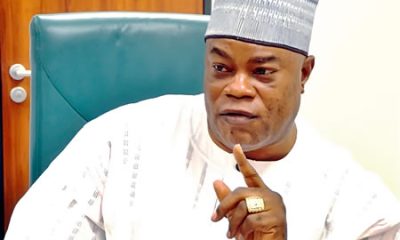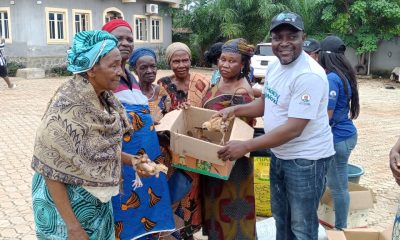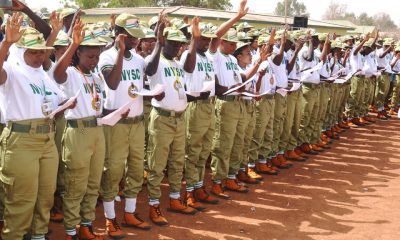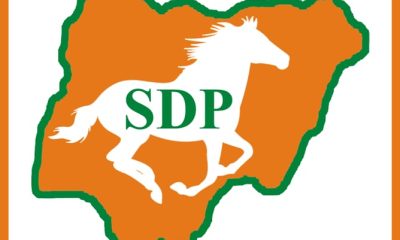NEWS
Leapfrogging Nigeria’s Economy Development through Free Trade Zone
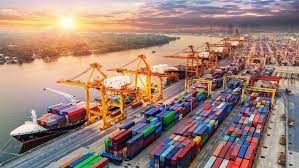
By Martins Odeh
There appears to be deep-seated and conclusive negative opinions about the modus operandi of the Free Trade Zone Scheme among individuals in and out of government in Nigeria.
This global economic system is primarily aimed at encouraging economies of scale through seamless production and manufacturing for export and local markets.
It also aims to support backward linkages; industrialisation; infrastructure development; employment generation; foreign exchange earnings, and revenue generation among others.
A Free Trade Zone remains a global economic matrix with a distinct framework which gives this business ecosystem the status of “country within a country.
’’It, therefore, behooves any nation willing to adopt the concept to run it in line with the local law that regulates its operation.
This law is enshrined in the NEPZA Act 63 of 1992 and it is within the purview of international best practice and framework.
The Federal Government, seeing the benefits of the scheme to the national economy and development, adopted it some 30 years ago.
The scheme might not be at the growth level that the government had envisaged yet, but some stakeholders say excellent milestones have been attained.
For instance, 52 Free Trade Zones have been created, with over 600 enterprises operating within those business landscapes with a cumulative USD 30 billion investment lubricating the economy.
Deborah Dada, a legal practitioner, said the primary laws regulating the FTZs in Nigeria are the Nigerian Export Processing Zone Act 1992 (NEPZ Act) and the Oil and Gas Free Zone Act (OGFZ Act).
“NEPZA has also made specific regulations over the operation of specific FTZs like the Lekki Free Trade Regulations 2016.
“NEPZA has passed a regulation over the operation of FTZs in Nigeria known as the Regulations and Operational Guidelines for Free Zones in Nigeria 2004.
“Free zones in Nigeria provide rewarding opportunities that not only attract foreign investors but also provide employment opportunities to local citizens.
Thus, businesses should take advantage of these incentives to maximise industrial growth and economic development by taking steps to set up their businesses in a free trade zone in Nigeria.”
Some stakeholders say, in spite of challenges, investors and operators have found respite in the special interest of President Bola Ahmed Tinubu, to use the scheme to upscale industrialisation.
They cited how Tinubu, then governor of Lagos State, used the free trade zone concept to reconfigure the economic landscape of the Lekki Area of the state.
He also used it to abet the catastrophic submerge of the entire Victoria Island area of the state through the conversion of the then-ruptured Bar Beach into a world-class Eko Atlantic Free Trade Zone.
Today, the Lekki area harbours the Lagos Free Zone, Dangote Refinery Free Zone Enterprise, Alaro City, Deep Sea Port, and Lekki Free Trade Zone.
To the credit of the president, these accomplishments earned him the praise of stakeholders as the “brain behind modern free trade zone in Nigeria”.
The president’s attention must again be called to the gains and prospects of the scheme through sustained promotion of the economies of scale over the temptation of listing it as a pure revenue generation hub.
The concept of economies of scale promotes long-term and sustainable dividends for the country so long as the enterprises continue to reap low production cost advantages.
This will encourage continuous inflow of Foreign Direct Investments (FDIs), Direct Diaspora Investments (DDIs) as well as Local Direct Investments (LDIs) while keeping a grip on investments already attracted.
Regardless of the loud voices of anti-free trade zone campaigners, the scheme has made modest contributions to the economy.
How is it possible for the 52 Free Trade Zones and the over 600 enterprises currently in operation have not impacted the economy significantly?
The response to the above question was provided by the NEPZA Managing Director, Dr Olufemi Ogunyemi, while alluding recently that free trade zone was, however, not a ‘free meal ticket’ for the investors.
The import of this statement is simply to help grow public knowledge on the contribution of the free trade zones to the Domestic Gross Product (GDP) and National Gross Product (NGP) respectively.
The NEPZA Chief Executive Officer was emphatic when he said: “Free Trade Zones are business anchorages that have for decades been used to generate revenues for the Federal Government.”
He explained that the widely held notions that the scheme was a ‘free meal ticket’ for the investors thereby denying government revenues were incorrect.
“The NEPZA Act provides an exemption from all federal, state, and local governments taxes, rates, levies, and charges for FZE, of which duty and VAT are part.
“However, goods and services exported into Nigeria attract duty, which includes VAT and other charges.
“In addition, NEPZA collects over 20 types of revenues ranging from 500,000 USD-Declaration fees, 60,000 USD Annually as Operation License (OPL), and 3000 USD to 500 USD Registration fees in line with extant regulations on IGR remittances to the Federation Account.
“There is also the 100 USD to 300 USD Examination and Documentation fees per transaction which occurs daily’’, he said.
According to him, there are other periodic revenues derived from Vehicle Registration, Visa among others. The operations within the free trade zones are not free in the context of the word.
For instance, the Authority’s First and Second Quarters of the 2023 Key Performance Indicator (KPI) showed that a combined total of 21.3 million dollars was generated as Foreign Direct Investment while N9.8 billion accrued as Local Direct Investment.
Conversely, a total of 28.9 million dollars was generated as International Exports and N250.5 billion was accrued to the government as Domestic Exports while 338.9 million dollars and N36.3 billion were generated as International Imports and Domestic Imports.
Furthermore, the figure that accrued to the government as Custom Duty stood at N20 billion while that of PAYEE amounted to N346.8 million, and a total of 3, 776 employment was generated within the two quarters reviewed.
In total, the Authority’s 40 per cent contribution to the consolidated revenue in naira as of November 2023 stood at N1, 800,809,1773.38 with a similar 40 per cent margin of transfer to the account in dollars amounting to USD 1, 167,122.86.
The total of the figures generated in 2023, which included figures from Tender Fee; Withholding Tax (WHT); Value Added Tax (VAT); Stamp Duty; PAYEE as well as Customs Duty stood at N38, 879, 485, 774 568.90.
The KPI for 2022 also showed excellent flashes of gains made by the scheme which attracted a total of 28 new enterprises with a total of 90 million USD value of FDI and N80 billion value of Local Domestic Investment (LDI).
The record also placed the value of both the International and Local Exports at 36.8 million USD and N450.8 billion respectively.
The 2022 key performance indicator further highlighted the value of International and Domestic imports to be 999 million USD and N188 billion.
The report stated that a total of N34.215 billion was generated as Custom Duty while the amount generated from the free trade zone in 2022 by the Immigration Service stood at N702.7 million with a total of 3,555 employment created.
A session of stakeholders urges the authority to be aware of the need to ensure a transparent listing and deductions of mandatory duties and taxes.
One of the ways to achieve that, they say, is by digitalising its process and agreeing on the best ways for a dependable free trade zone tax administration with the relevant authorities.The scheme remains an economic development tool the country is using to leapfrog our economy and its sustainability and success should be our utmost concern. (NANFeatures)
NEWS
Why I Won’t Defect to APC – Ex-Reps Deputy Minority Whip Adekoya
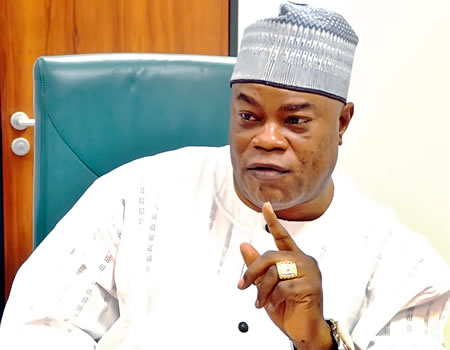
By Mike Odiakose, Abujan
Immediate past Deputy Minority Whip of the House of Representatives, Hon Adesegun Abdel-Majid Adekoya, has debunked speculations that he is planning to defect to the ruling All Progressives Congress (APC) from the Peoples Democratic Party (PDP).
Hon Adekoya has been a member of the PDP from the party’s formative year in 1998.
Speaking to Journalists in his country home in Ago Iwoye, Ogun State, the grassroot mobilizer popularly called Attacker, declared that despite the wave of defections ahead of 2027 election, he has absolutely no plans to join the APC.
He declared that most of the politicians Defecting to the APC are doing for personal reasons and not for the interest of their people as most of them claimed.
According to him, most of the defectors have skeletons in their closets and are desperate for political cover.
He also attributed defection to APC by some politicians to financial reasons.
“But let me make it absolutely clear—crossing to APC has never crossed my mind. I have no reason to, and by the grace of Almighty Allah, I’m not financially desperate or in need of political cover, which is often the case for many who defect.
“Let’s be honest. Most people who switch parties do so because they have skeletons in their closets. Otherwise, why would a sitting governor, supposedly confident in his leadership, jump ship to APC?”
Making reference to the recent event of switching from one party to another that took place in Akwa Ibom for example, he stressed that it well known fact that the entire PDP structure rejected their governor’s attempt to drag them into APC.
“Even key commissioners and the majority of the House of Assembly refused to follow him. That tells you everything.
“So if someone asks me if I’m going to join APC, or work for Tinubu my answer is simple is in between.
Hon Adekoya also frowned at the absurdity in some of the actions of the Ogun State government.
Citing an instance he said: “I was once invited to an event by the Ogun State government. Ironically, the letter arrived on Eid day. I was told someone from the state was at my gate, and I expected good news.
“Instead, they handed me an invitation for June 12th. I felt insulted. On a sacred holiday meant for giving, you bring me a letter demanding my time and money?
“Traveling to Abeokuta would cost me about ₦50,000. Why should I do that for a government I’ve gained nothing from, one that’s brought no benefit to the people?
“We still have electric poles installed six years ago that have never worked. We still have children in public schools wearing tattered uniforms. Many schools only have two government-supplied shirts—the rest are PTA donations.
Is that the system I’m expected to support?”
Hon Adekoya, who sponsored the Teachers Enhancement Act that saw the elongation of the length of service years for Teachers nationwide when he was in the National Assembly, lamented that the state of our education sector is disgraceful.
“Most public schools in Ogun State barely survive. The government does next to nothing, so concerned citizens like me are forced to step in.
“We lobby education departments with College of Education, and University to consider our area as a priority when send student for Teaching Practices or NYSC, we provide accommodation for teachers, and even offer stipends—all because we care. But not everyone has access to these networks. The average student is suffering.
“In my own political experience, there period I have to spent over millions on litigation alone while contesting under PDP vs APC candidates, in contrast, I might just spend less. Why? Because the state electoral process is rigged in favor of those who already have the nod from the powers that be.
“Imagine what I could have done for the people if I had invested that ₦160 million in community development instead of fighting legal battles. Politics in this country has become a financial sinkhole with little return for the masses.
“As a person with Political Journey and Vision that
rose through the ranks, from council chairman to House of Representatives, I didn’t parachute into politics. So when someone from nowhere is handed a ticket over those of us with long-standing records of service, it’s a absorb.”
Despite his interest in public service, particularly in returning to the House of Representatives, he said the Senate doesn’t appeal to him.
“I want to finish what I started—especially abandoned projects in Degubo and the Ogbe Waterside areas. From uncompleted hospitals to stadiums overtaken by weeds, there’s a lot to fix.
“In Degubo alone, I spearheaded projects like town halls, bridges, classrooms, and the rehabilitation of royal palaces. But sadly, some federal projects like the Ogbe Paper Mill were sold off and looted. I fought hard against that, but the place had already been privatized. There was little I could do beyond raising motions in the House.”
He future declared that he believes that 2027 will be different, stressing that he knows that Nigerians are tired, hungry and disillusioned.
“It won’t be about APC or PDP anymore—it will be about individuals with integrity and vision. The people will vote for character, not party.
“As for Tinubu, if he wants to contest again, he must change. The dominance of Lagos-based appointments is hurting the Yoruba nation. Out of ten appointments, eight go to Lagos. That imbalance must be corrected if there’s to be unity.
I still have faith that change is possible—but only if we focus on people, not party platforms.”
He added that it is possible for someone that is concerned about the welfare of his constituents to be close to the government without compromising their principles.
“You can be close to government without selling your soul. Proximity doesn’t have to mean compromise. And certainly, it shouldn’t mean betrayal of your people.
“I’ve maintained my independence, and I will continue to fight for what’s right. If given another chance, I’ll serve again—not for fame, but to complete the work I started and ensure my people see the benefits of good governance.
“Let it be known: I am not joining APC, and I will never allow personal gain to override public service,” he said.
NEWS
Nigeria Customs Service Foils Smuggling Attempts, intercepted PMS worth over 95 million in Adamawa.

From Yagana Ali Yola
The Nigeria Customs Service, Zone D, Adamawa State, has made significant seizures of petroleum products and arrested suspects in various smuggling operations.
The seizures include 2,276 jerricans of Premium Motor Spirit (PMS) and 19 jerricans of Automotive Gas Oil (AGO), with a total Duty Paid Value (DPV) of ₦95,695,000.
The controller general of custom Bashir Adewale Adeniyi , who was represented by the commander operations whirlwind
HK Ejibunu said the smuggling operations were intercepted at various notorious smuggling flashpoints, including Malabu-Belel Axis, Girei-Wuro Bokki Axis, Gurin-Fufore Axis, Jamtari Axis, Maiha Axis, Jimeta Waterside, and Mubi-Sahuda Axis.
The petroleum products were carefully concealed and being prepared for illegal export or distribution to neighboring countries.
Earlier in his welcome address the controller Nigeria custom Adamawa/ Taraba command HB Bashir call on good people of Adamawa state to cooperate with the command in other to bring to an end the activity of the Economics saboteurs who snuggled PMS to the neighboring country of Cameron at detriment of Nigerian.
However, the Nigeria Customs Service reported a disturbing incident of a violent mob attack on its operatives while on duty. The officers were ambushed by violent mobs and smugglers who barricaded access roads and assaulted the officers. One of the attackers was fatally injured during the chaos.
The smuggling of PMS not only results in revenue loss for the country but also puts additional pressure on the already strained fuel supply chain. The Nigeria Customs Service is committed to curbing such illicit activities that threaten national security.
The Service is working with relevant security agencies to identify and bring all perpetrators to justice. The public is urged to support law enforcement activities by providing timely intelligence and standing against such wicked acts and criminalities.
The Nigeria Customs Service remains committed to its mission of protecting the nation’s borders and preventing economic sabotage. The Service condemns the violent attack on its operatives and reiterates its zero-tolerance stance toward violence and obstruction of official duty.
| ReplyReply allForwardAdd reaction |
NEWS
Group Empowers Women in 12 Akwanga Communities with Poultry Items.

From Abel Zwanke, Lafia
As part of its ongoing efforts to promote grassroots entrepreneurship and self-reliance, the Community Initiative for Character Moulding and Entrepreneurship Development (CiCMED), under its Future Planter Happy World Project, has empowered women in 12 communities across Akwanga Local Government Area of Nasarawa State with poultry starter kits.
The one-day community engagement, themed “Building Self-sufficiency and a Brighter Future for Nigerian Mothers and Children (Happy World),” was designed to equip rural women with the resources needed to establish and sustain small-scale poultry farming ventures.
Beneficiaries received 240 Nuellas (pullet chicks), poultry drinkers and feeders, and bags of chicken feed to aid their startups.
Speaking during the one Day distribution exercise on Wednesday, the programme coordinator, Mr. Kefas Tigga, said the empowerment was a deliberate effort to build economic resilience among women, particularly in underserved communities.
“This project is a response to the need for sustainable empowerment. We believe that by equipping women with these poultry items, they can generate income, support their families, and contribute meaningfully to local food production,” Tigga stated.
He acknowledged the vital support of Rt. Hon. Musa Ahmed Mohammed, the Nasarawa State Accountant General, who also holds the traditional title of Baraden Nasarawa, for his unwavering commitment to community development.
“We’re grateful to Rt. Hon. Musa Ahmed Mohammed, the Nasarawa State Accountant General, for his continued support for initiatives that promote economic growth and social impact at the grassroots,” he added.
One of the beneficiaries, Mrs. Amina Adamu, expressed her gratitude, describing the project as a life-changing intervention.
“This is the kind of support we need. With these birds and feeds, I can start something immediately. I’m very grateful,” she said.
CiCMED reaffirmed its dedication to closely monitoring the beneficiaries’ progress and pledged to extend the Future Planter Happy World Project to more communities across the state.

